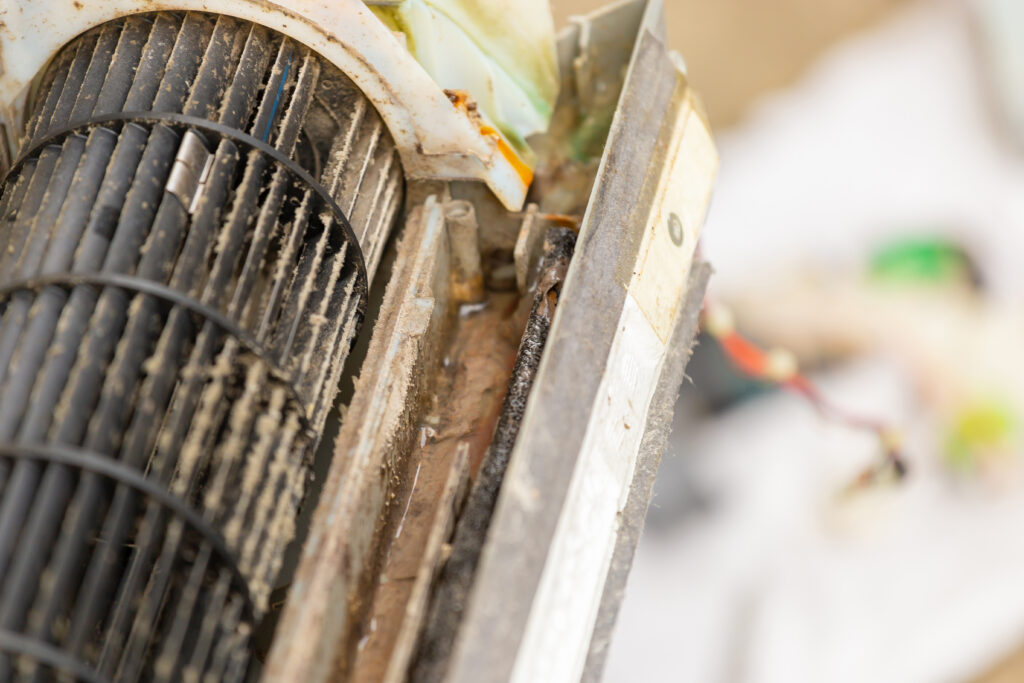The HVAC (Heating, Ventilation, and Air Conditioning) system is the heart of any building, providing comfort and regulating the indoor environment. However, like any complex machinery, HVAC systems are prone to failures. Understanding the common reasons behind these failures can help homeowners and business owners take preventive measures, ensuring the longevity and efficiency of their HVAC systems. In this blog post, we will explore the most frequent causes of HVAC system failures and discuss ways to mitigate these issues.

1. Lack of Regular Maintenance:
One of the primary reasons for HVAC system failures is the lack of regular maintenance. Regular check-ups, cleaning, and servicing are essential to keep the system running smoothly. Dust and debris accumulation can clog filters and reduce airflow, putting extra strain on the system components.
2. Dirty or Clogged Filters:
Dirty or clogged filters can restrict airflow, making the HVAC system work harder to maintain the desired temperature. This not only reduces efficiency but also leads to wear and tear of components, eventually causing system failure. Regularly replacing or cleaning filters can prevent this issue.
3. Refrigerant Leaks:
Refrigerant is crucial for the cooling process in air conditioners. Leaks in the refrigerant lines can lead to insufficient cooling and increased energy consumption. Moreover, low refrigerant levels can cause the compressor to overheat and fail. Detecting and repairing leaks promptly can prevent significant damage to the system.
4. Electrical Issues:
HVAC systems rely on complex electrical components and wiring. Problems such as faulty wiring, capacitor issues, or malfunctioning sensors can disrupt the system’s operation. Regular inspections by qualified technicians can identify and resolve electrical issues before they escalate into major failures.
5. Wear and Tear of Components:
Over time, various components of an HVAC system, such as the compressor, blower motor, and fan, can wear out. Regular usage and lack of maintenance accelerate this process. Timely replacement of worn-out parts can prevent sudden breakdowns and extend the system’s lifespan.
6. Improper Installation:
Poor installation practices can lead to improper sizing, inadequate airflow, and incorrect refrigerant charge. These factors not only reduce efficiency but also increase the likelihood of system failures. It is crucial to hire experienced professionals for the installation to ensure the system is set up correctly from the beginning.
7. Thermostat Issues :
The thermostat acts as the control center of the HVAC system. Malfunctions in thermostats can result in inaccurate temperature readings or failure to communicate with the system. This can cause the system to operate erratically or not function at all. Regular calibration and maintenance of thermostats are essential to prevent such issues.
Understanding the common reasons behind HVAC system failures empowers homeowners and business owners to take proactive measures. Regular maintenance, timely repairs, and professional installations are key to preventing these issues. By investing in proper care and maintenance, individuals can ensure their HVAC systems operate efficiently, providing optimal comfort and cost savings in the long run. If you suspect any issues with your HVAC system, don’t hesitate to contact a qualified technician to assess and address the problem promptly. By staying vigilant and proactive, you can enjoy the benefits of a reliable and efficient HVAC system year-round.
